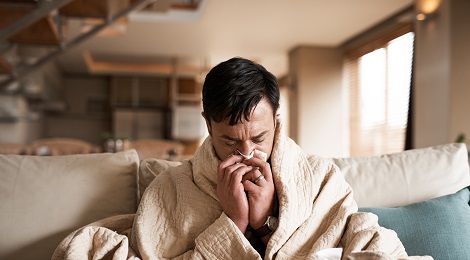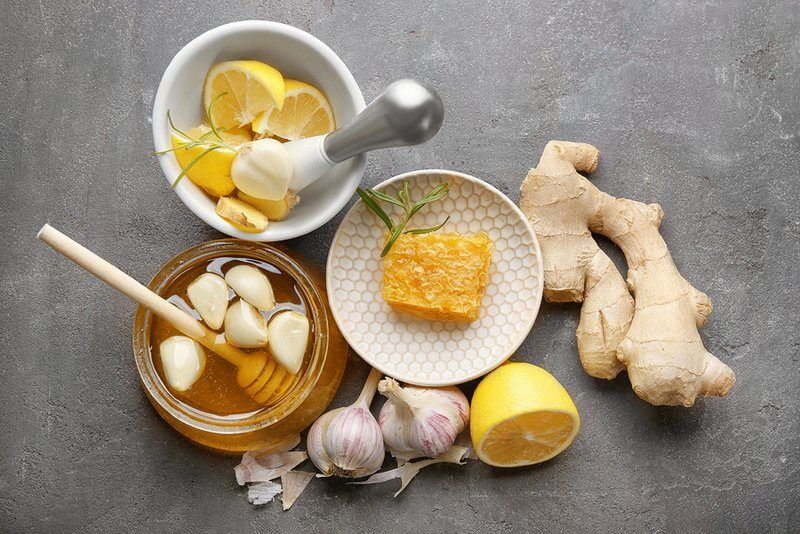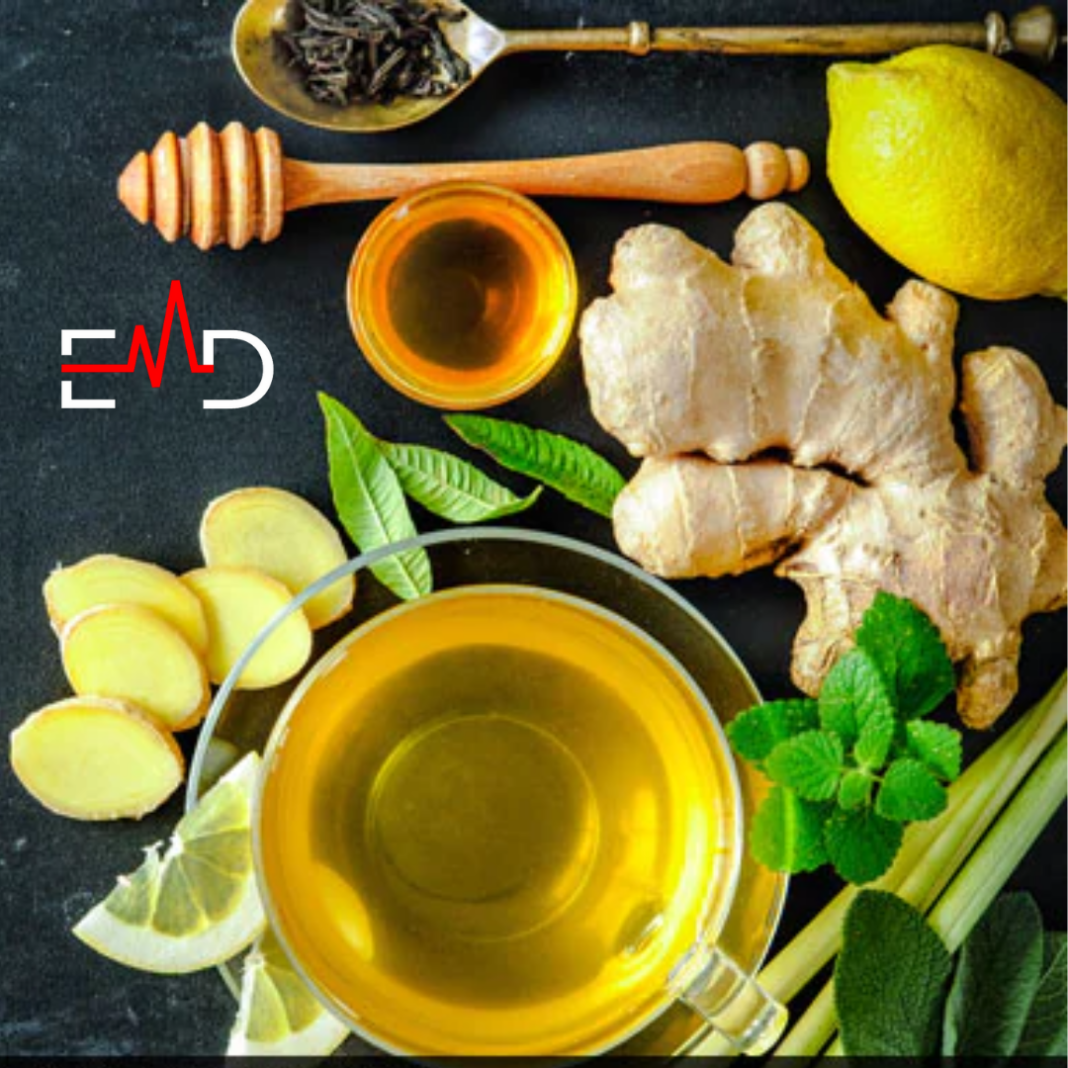Exercise Daily – Colds and flu are common illnesses that can cause various unpleasant symptoms, from a runny nose and sore throat to fever and body aches. While there is no cure for the common cold or flu, several natural remedies can help relieve symptoms and speed up recovery. The battle against colds and flu can be daunting, but armed with the right knowledge and strategies, it’s possible to alleviate symptoms and shorten recovery time. Understanding the nuances between these ailments is crucial in finding the most effective treatments.
Colds and Flu
What is a Cold?
A cold is a mild respiratory illness caused by a virus. Symptoms typically include a runny nose, sore throat, cough, and sneezing. Colds are usually not serious and will resolve independently within a week or two.
What is the Flu?
The flu is a more severe respiratory illness caused by influenza viruses. Symptoms of the flu can include fever, chills, muscle aches, headache, fatigue, a runny nose, sore throat, and cough. The flu can be serious, especially for people with underlying health conditions.

Causes and Symptoms
Colds and flu stem from viruses but differ in specific strains and symptoms. Recognizing the signs early can aid in swift action.
Colds Symptoms
- Runny or stuffy nose
- Sore throat
- Sneezing
- Mild coughing
- General fatigue
Flu Symptoms
- High fever
- Body aches
- Severe fatigue
- Dry cough
- Headaches
Differences Between Cold and Flu
Colds and flu are respiratory illnesses, but different viruses cause them and have different symptoms. Colds are typically milder than the flu and do not usually cause fever or muscle aches. The flu, on the other hand, can cause more severe symptoms and can lead to complications such as pneumonia and bronchitis.

Prevention
Colds and flu often disrupt our daily lives, but a proactive approach to prevention can be the ultimate defense. By fortifying our immune systems and adhering to simple yet effective hygiene practices, we can significantly reduce the risk of falling victim to these pesky viruses.
Boosting the Immune System
A robust immune system is a stalwart shield against various illnesses, including colds and flu. Fortunately, several lifestyle choices can help strengthen our body’s natural defenses.
Regular Exercise
Engaging in regular physical activity not only benefits our overall health but also aids in enhancing immune function. Exercise stimulates the production of white blood cells, which is crucial in fighting off infections.
Balanced Diet
The adage “you are what you eat” rings true, especially concerning immune health. Opt for a well-rounded diet rich in fruits, vegetables, lean proteins, and whole grains to provide essential nutrients that bolster immunity.
Proper Hydration
Staying adequately hydrated is vital for optimal bodily functions. Water assists in flushing out toxins and supports the mucous membranes in the respiratory system, helping to fend off viruses.
Hygiene Practices
Simple habits can serve as powerful shields against the spread of cold and flu viruses, significantly reducing the likelihood of infection.
Frequent Handwashing
Regular and thorough handwashing with soap and water for at least 20 seconds is a cornerstone in preventing the transmission of viruses. Hand sanitizers containing at least 60% alcohol are a convenient alternative when soap and water are unavailable.
Avoid Close Contact with the Sick
While empathy is essential, maintaining a safe distance from individuals displaying cold or flu symptoms minimizes the risk of contagion. Respiratory viruses can spread through droplets when an infected person coughs, sneezes, or talks.
Respiratory Etiquette
Covering the mouth and nose with a tissue or elbow when coughing or sneezing prevents the spread of respiratory droplets, safeguarding others from potential infection.
Environment and Habits
Creating an environment conducive to health and implementing certain habits can significantly contribute to preventing the onset of colds and flu.
Clean and Disinfect Surfaces
Regularly disinfect frequently touched surfaces, such as doorknobs, countertops, and electronics, to curb the spread of viruses lingering in these areas.
Healthy Habits
Promote healthy habits within your surroundings. Encourage family, friends, and colleagues to follow similar preventive measures, creating a collective effort to mitigate the risk of contagion.
Stay Informed and Prepared
Stay updated with reliable information regarding outbreaks or prevalent strains in your area. Being prepared and proactive can assist in taking necessary precautions.

Natural Remedies for Colds and Flu
Several natural remedies can help relieve symptoms of colds and flu and speed up recovery. Some of the most effective remedies include:
1. Hydration is King:
- Drink fluids like water, broth, herbal teas, and clear juices. This helps thin mucus, prevents dehydration, and flushes out toxins. Aim for 8-10 glasses daily.
2. Rest and Recuperation:
- Your body needs energy to fight off infection. Prioritize sleep and take naps when possible. Avoid strenuous activities and allow your body to heal.
3. Warm and Soothing Fluids:
- Gargle with warm salt water to soothe a sore throat and loosen mucus. Enjoy hot liquids like ginger tea, lemon honey water, or chicken soup for comfort and symptom relief.
4. Nasal Irrigation:
- Use a neti pot or saline nasal spray to clear congestion and ease breathing. This helps flush out irritants and thin mucus.
5. Steam Therapy:
- Take a hot shower or inhale steam from a bowl of hot water with a towel over your head. This loosens mucus and relieves congestion. Add essential oils like peppermint or eucalyptus for an extra boost.
6. Spice Up Your Life:
- Ginger, garlic, and turmeric possess anti-inflammatory properties that can help ease aches and pains. Add them to food and teas, or even gargle with ginger tea for a soothing effect.
7. Honey Power:
- A spoonful of honey can soothe a sore throat and cough. It’s also a natural antibacterial and may shorten the duration of a cold. Avoid honey for children under 1 year old.
8. Herbal Helpers:
- Consider natural remedies like echinacea, elderberry, or zinc lozenges. These may boost your immune system and potentially shorten the duration of a cold. Consult your doctor before taking any supplements.
9. Elevate Your Head:
- Sleeping with an extra pillow or two can help drain mucus and ease congestion, especially at night.
10. Nourish Your Body:
- Eat a balanced diet rich in fruits, vegetables, and whole grains. These provide essential vitamins and minerals that support your immune system.

When to Seek Medical Attention
In most cases, colds and flu can be treated at home with rest and over-the-counter medications. However, it’s important to seek medical attention if you have any of the following symptoms:
- Fever over 101 degrees Fahrenheit
- Severe headache
- Shortness of breath
- Chest pain
- Confusion
- Seizures
- Vomiting or diarrhea that lasts more than 24 hours
Conclusion
Colds and flu are common illnesses that can cause various unpleasant symptoms. While there is no cure for the common cold or flu, several natural remedies can help relieve symptoms and speed up recovery. These tips can help prevent colds and flu and stay healthy all season.
FAQs – Conquering Colds and Flu: Natural Remedies for a Speedy Recovery
Can I take over-the-counter medications for colds and flu?
Yes, several over-the-counter medications can help relieve symptoms of colds and flu. However, reading the labels carefully and following their directions is important.
How long should I stay home from work or school if I have a cold or flu?
It’s important to stay home from work or school if you have a cold or flu to prevent the spread of the illness to others. It would be best to stay home until you are fever-free for at least 24 hours and your other symptoms have improved.
What should I do if I have a cold or flu and I’m pregnant?
If you are pregnant and have a cold or flu, you must see your doctor immediately. Some medications that are safe for adults may not be safe for pregnant women.
Can I prevent colds and flu by taking supplements?
Supplements are not guaranteed to prevent colds and flu, but some supplements, such as vitamin C, zinc, and elderberries, may help boost your immune system and reduce your risk of getting sick.
What are some natural ways to boost my immune system?
Several natural ways to boost your immune system include eating a healthy diet, regular exercise, getting enough sleep, and managing stress.




